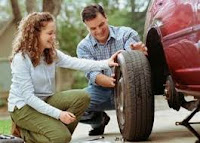Most parents would say that they want their children to grow
up and be “independent”. But what
exactly does that look like and how do we develop that? Independence is
learning to do things for one’s self and becoming less dependent on others.
When children leave home to live on their own after high
school or college, they should have the life skills necessary to be
independent. They should be able to
clean their room and home, launder their clothes, organize their belongings, change
sheets on a bed, plan healthy meals, grocery shop, cook/bake, hang pictures securely on a wall, manage a savings
and checking account, perform basic mechanics on their car (change a tire, fill
the wiper fluid, and maybe change the oil), recycle, formulate a budget, and
pay bills in a timely fashion, to name a few.
These skills are learned--they do not simply appear or
emerge. An infant is totally dependent
on its parents and care providers for the
provision of food, positional changes, bathing, diapering, etc. As a toddler grows and a child matures they can take on more responsibility for their own care and help with the needs of the family unit, thus learning the skills they will need to live independently. Chores are an essential part of life as we age; let’s teach children to enjoy work and the sense of accomplishment a job well done brings to a person. Life is much more pleasant when we learn to find satisfaction in the simple, day-to-day tasks.
provision of food, positional changes, bathing, diapering, etc. As a toddler grows and a child matures they can take on more responsibility for their own care and help with the needs of the family unit, thus learning the skills they will need to live independently. Chores are an essential part of life as we age; let’s teach children to enjoy work and the sense of accomplishment a job well done brings to a person. Life is much more pleasant when we learn to find satisfaction in the simple, day-to-day tasks.
Many things are learned by trial and error, but parents can
facilitate the development of independence by introducing age-appropriate
chores as their children grow and mature.
Numerous skills are initially taught by observation with a gradual
assumption of responsibility for the entire task.
Example 1: Allowing a young child to watch as you wash, dry, and fold clothes is a start toward laundry competence. Encouraging children to separate the dark clothes from the lighter colored clothes teaches colors, sorting, and counting and is also one of the necessary skills for washing. Letting kids put clothes in or take them out of the dryer practices the concept of in and out and is good physical exercise (squat-to-stand--strengthening and bending—flexibility). Teaching children to fold shirts, match socks, and put clothing in closets and drawers can be good educational opportunities as well as the beginning of life skills needed for self-sufficient living.
Example 2: Even very young children are fascinated by the process of washing dishes. Let them stand on a chair (make sure that they have the balance to do so! Or have a look at a great Kitchen Helper that allows kids to work alongside adults in the kitchen safely!) Let them use the faucet hose to rinse off dishes. Let them place the silverware in the dishwasher basket. They can learn great skills by stacking and counting small plates.
Children by age five should have specific chores that are
their day responsibility. As they grow,
the number of chores or complexity of the chores may increase. Some chores that could be assumed by children
include:
- Make their own bed
- Put folded clothes away
- Feed or water Pets
- Put toys on shelves or in bins (see our article, “Organize the Playroom”)
- Set the table
- Empty the dishwasher
- Dust the house
- Empty the trash baskets in each room

Other life skills, such as balancing a checkbook, changing a tire, or formulating a weekly meal plan, are activities that should be taught as a teenager. Make a list of the skills you want your teenager to master and then schedule times to work on those activities.
Make sure that your children are as prepared for life on
their own as you can. Have high
expectations—have the confidence in your kids that they can do a successful
job. Encourage them and gently guide and
correct errors as needed. Independence
is a valuable virtue—make a conscious effort to instill it in your children!
Blog Administrator: Trisha Roberts
proeducationaltoys@gmail.com
Copyright © 2017 TNT Inspired Enterprise, LLC, All rights reserved.
Unauthorized duplication is a violation of applicable laws.








Great Blog
ReplyDeleteWe love the idea of incorporating life skills into every day life and play!
ReplyDeletewww.LearnWhileYouPlay.toys